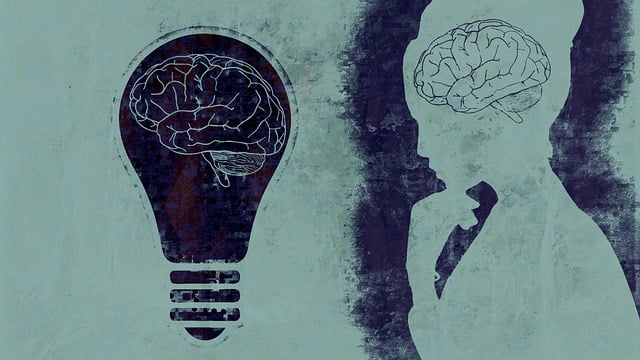Lafayette Bilingual Therapy leads in crisis management education, offering specialized training for Crisis Intervention Teams (CITS). Integrating mindfulness, policy analysis, and self-care advocacy, they enhance CITS' effectiveness during high-stress situations. Through interactive workshops, simulations, and comprehensive programs focusing on cultural sensitivity, coping skills, and mental wellness coaching, Lafayette Bilingual Therapy equips teams with the tools to manage crises swiftly and empathetically. Their training fosters community resilience and improves outcomes for individuals facing emotional distress.
“Crisis intervention teams play a pivotal role in providing immediate, effective mental health support during crises. This article explores the significance of these specialized teams and delves into how programs like Lafayette Bilingual Therapy are revolutionizing crisis intervention training. We’ll dissect the essential components of comprehensive training, including cultural sensitivity and evidence-based practices, to ensure teams are prepared to handle real-world crises. By understanding their role, we can foster better-equipped and resilient crisis response networks.”
- Understanding Crisis Intervention Teams: A Key Component in Mental Health Support
- The Role of Lafayette Bilingual Therapy in Developing Effective Crisis Teams
- Essential Components of a Comprehensive Crisis Intervention Training Program
- Implementation and Benefits: Preparing Teams to Handle Real-World Crises Effectively
Understanding Crisis Intervention Teams: A Key Component in Mental Health Support

Crisis Intervention Teams (CITS) are a vital component in providing effective mental health support, especially during emergencies or critical situations. These teams typically consist of trained professionals from various disciplines who collaborate to assess and assist individuals experiencing a crisis. At Lafayette Bilingual Therapy, we recognize the importance of CITS in ensuring timely and compassionate care for those struggling with mental health challenges.
By integrating Mindfulness Meditation techniques into their training programs, CITS can enhance their ability to manage high-stress scenarios. Mental Health Policy Analysis and Advocacy plays a crucial role in shaping supportive environments, while promoting Self-Care Practices among team members is essential to prevent burnout and ensure sustained service delivery. Through comprehensive training, Lafayette Bilingual Therapy aims to empower crisis intervention teams, fostering better outcomes for individuals facing mental health crises.
The Role of Lafayette Bilingual Therapy in Developing Effective Crisis Teams

Lafayette Bilingual Therapy plays a pivotal role in equipping communities with the tools to effectively manage crises. Their specialized training programs focus on developing highly skilled crisis intervention teams, ensuring a holistic approach to addressing emotional distress. Through interactive workshops and immersive simulations, participants gain practical knowledge of conflict resolution techniques, enhancing their ability to de-escalate tense situations.
The therapy center’s expertise lies in teaching emotional well-being promotion techniques tailored for diverse cultural backgrounds, fostering empathy and understanding within the team. Furthermore, they emphasize the development of emotional intelligence, enabling team members to recognize and respond appropriately to individuals’ unique needs during a crisis. This comprehensive training equips teams with the skills to provide compassionate and culturally sensitive support, ultimately improving community resilience.
Essential Components of a Comprehensive Crisis Intervention Training Program

A comprehensive crisis intervention training program, like those offered by Lafayette Bilingual Therapy, should be meticulously crafted to equip individuals with a wide range of skills and knowledge. These programs aim to prepare participants for various challenging situations, ensuring they can provide effective support during crises. An essential component is the Cultural Sensitivity in Mental Healthcare Practice, allowing trainers to address diverse cultural backgrounds and beliefs, fostering inclusive interventions. By incorporating strategies tailored to different communities, teams learn to navigate complex scenarios with respect and understanding.
Moreover, Coping Skills Development plays a pivotal role. Training should include teaching participants various coping mechanisms and techniques to help individuals manage intense emotions and stress. This enables them to assist others in developing healthy strategies for dealing with crises. Additionally, integrating Mental Wellness Coaching Programs Development within the curriculum prepares teams to promote long-term mental wellness by providing guidance and support post-crisis situations.
Implementation and Benefits: Preparing Teams to Handle Real-World Crises Effectively

Effective crisis intervention team training programs are instrumental in preparing professionals to handle real-world crises with agility and empathy. At Lafayette Bilingual Therapy, we understand that navigating high-pressure situations demands a unique set of skills and strategies. Our comprehensive programs emphasize practical application, focusing on scenarios that reflect everyday challenges faced by teams in various settings.
Through interactive simulations, role-playing exercises, and evidence-based techniques, participants gain the resilience building blocks necessary to manage stress during crises. These workshops not only equip teams with advanced communication strategies but also foster a culture of support within the organization. By investing in such training, institutions can enhance their ability to respond swiftly and effectively, ensuring the well-being of all involved.
Crisis intervention team training, as highlighted by programs like those offered by Lafayette Bilingual Therapy, is a vital component in enhancing mental health support. By equipping teams with essential skills and knowledge, these training initiatives enable professionals to navigate real-world crises effectively. Comprehensive programs, as discussed, should include role-playing scenarios, cultural sensitivity training, and evidence-based practices. Through regular implementation, crisis intervention teams become better prepared to provide timely and compassionate care, ultimately reducing the impact of mental health emergencies.














